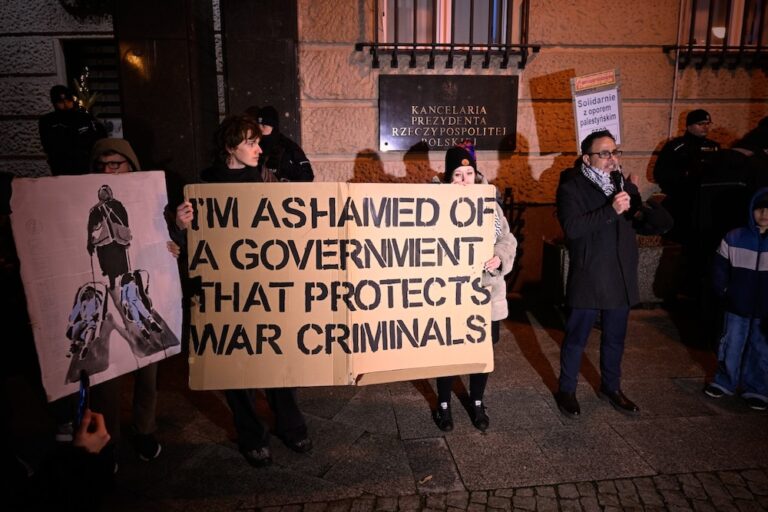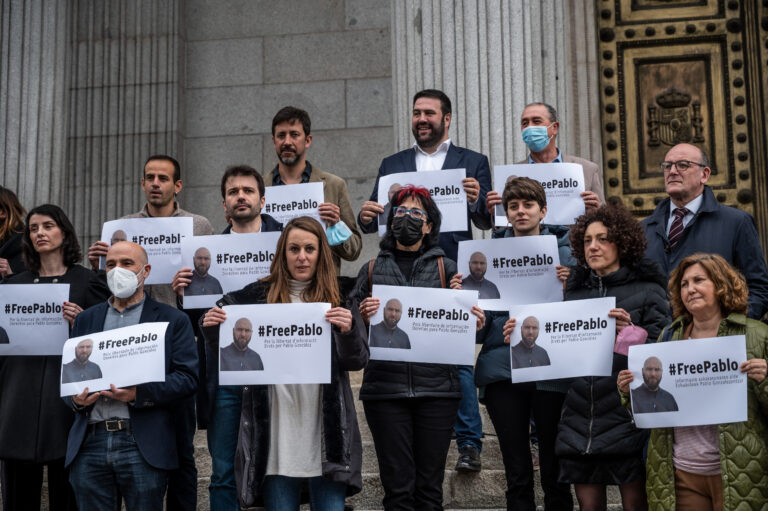(WAN/IFEX) – The following is a 26 May 2002 WAN press release: Bruges, Belgium, 26 May 2002 World’s Press Condemns Polish Persecution of Editors & Publishers The World Association of Newspapers has condemned actions by Polish authorities that prevented three prominent editors and publishers from attending the World Newspaper Congress and World Editors Forum in […]
(WAN/IFEX) – The following is a 26 May 2002 WAN press release:
Bruges, Belgium, 26 May 2002
World’s Press Condemns Polish Persecution of Editors & Publishers
The World Association of Newspapers has condemned actions by Polish authorities that prevented three prominent editors and publishers from attending the World Newspaper Congress and World Editors Forum in Bruges, Belgium, this week.
“These are absurd measures which seriously damage the image of the Polish State and its judicial system,” said a resolution passed by the Board of WAN on the eve of the conferences, the global meetings of the world’s press.
Three chief executives of the Polish national daily Rzeczpospolita — Grzegorz Gauden, Elzbieta Poniklo, and Piotr Fratczak — have had their passports withdrawn by a Polish court in a dispute involving Presspublica, the publishing company of Rzeczpospolita.
Presspublica has been accused of acting to the detriment of the company in a printing agreement with another Polish publication. The three executives have been placed under police surveillance and had their passports confiscated.
“The charges are suspected to be a manoeuvre by the government, which owns 49 per cent of the newspaper, to seize majority control over Presspublica,” said the resolution, which also criticised a proposed broadcasting law that would restrict private media ownership to the benefit of state-owned broadcasters.
The resolution said:
“The Board of the World Association of Newspapers vigorously protests against the persecution of three prominent Polish editors and publishers, which has prevented them from attending the World Newspaper Congress and World Editors Forum Conference in Bruges, Belgium, from 26 to 29 May 2002.
“Grzegorz Gauden, Elzbieta Poniklo, and Piotr Fratczak, from the Polish national daily Rzeczpospolita, have had their passports withdrawn by a Polish court in an ongoing legal procedure against Presspublica, the publishing company of Rzeczpospolita. Presspublica has been accused of acting to the detriment of the company in a printing agreement with another Polish publication and the three chief executives have been placed under police surveillance and had their passports confiscated.
“These are absurd measures which seriously damage the image of the Polish State, and its judicial system. The charges are suspected to be a manoeuvre by the government, which owns 49 per cent of the newspaper, to seize majority control over Presspublica. The legal procedures against the company must also be seen in the context of the government’s proposal for a new broadcasting law.
“The World Association of Newspapers is concerned that the provisions of the new legislation, which contain significant restrictions on private media ownership while strengthening the position of state-owned broadcasters, may have a seriously deleterious effect on freedom of the press.
“The new proposals will limit private media companies to ownership of a single national television or radio channel, or to a single channel or station in any local market, while exempting state broadcasters from these restrictions and permitting them wider scope to compete commercially with private enterprises. The state currently controls four national television channels and four national radio channels, in addition to its 49 percent stake in Rzeczpospolita.
“WAN respectfully suggests that widening private ownership and reducing state influence in the media would better serve the Polish public and promote a diversity of views. WAN calls on the Polish authorities to immediately give back the passports of Ms. Poniklo, Mr. Gauden, and Mr. Fratczak and to put an end to the police surveillance.”
The Paris-based WAN, the global organisation for the newspaper industry, defends and promotes press freedom world-wide. It represents 18,000 newspapers; its membership includes 71 national newspaper associations, individual newspaper executives in 100 countries, 13 news agencies and nine regional and world-wide press groups.


